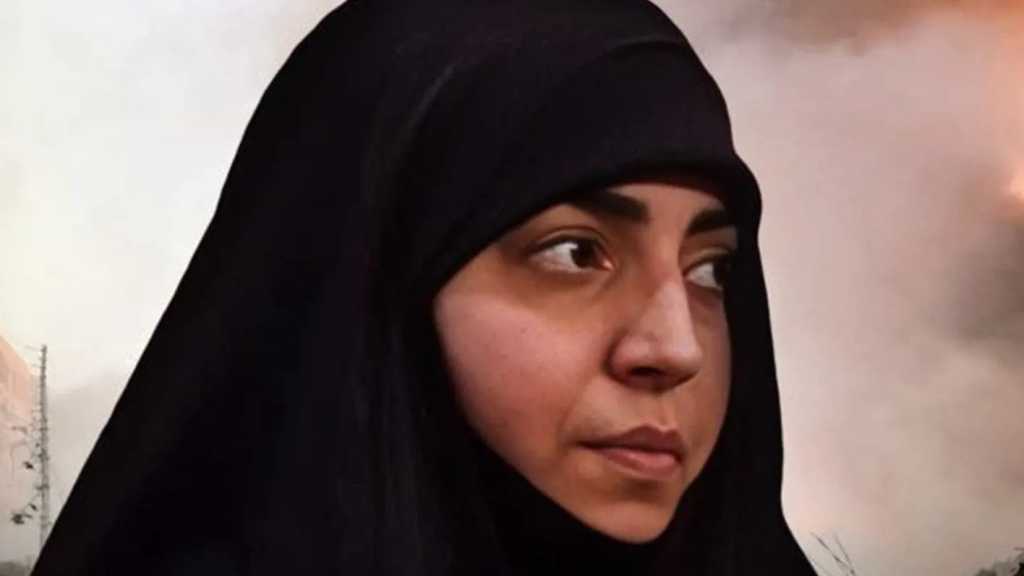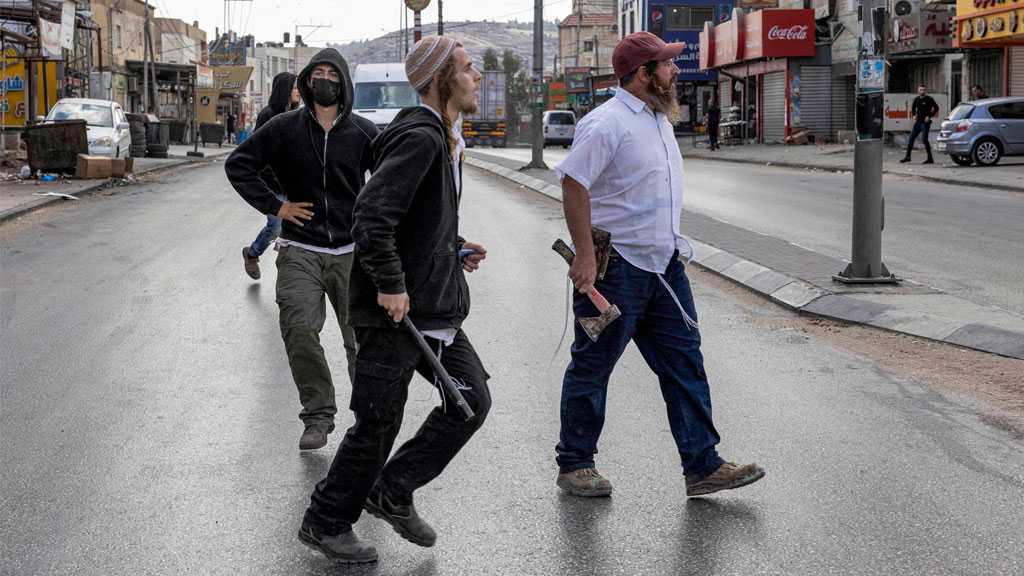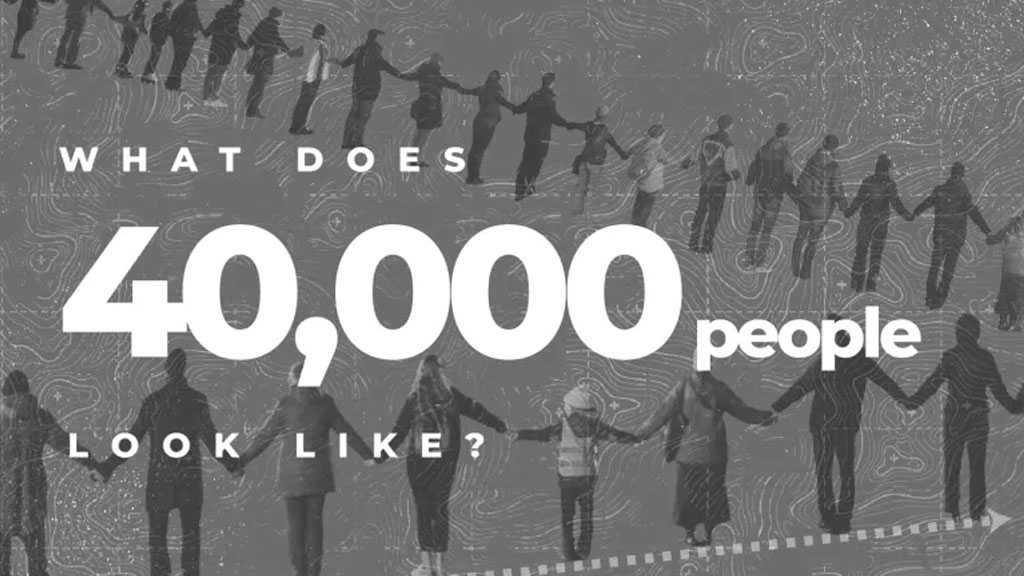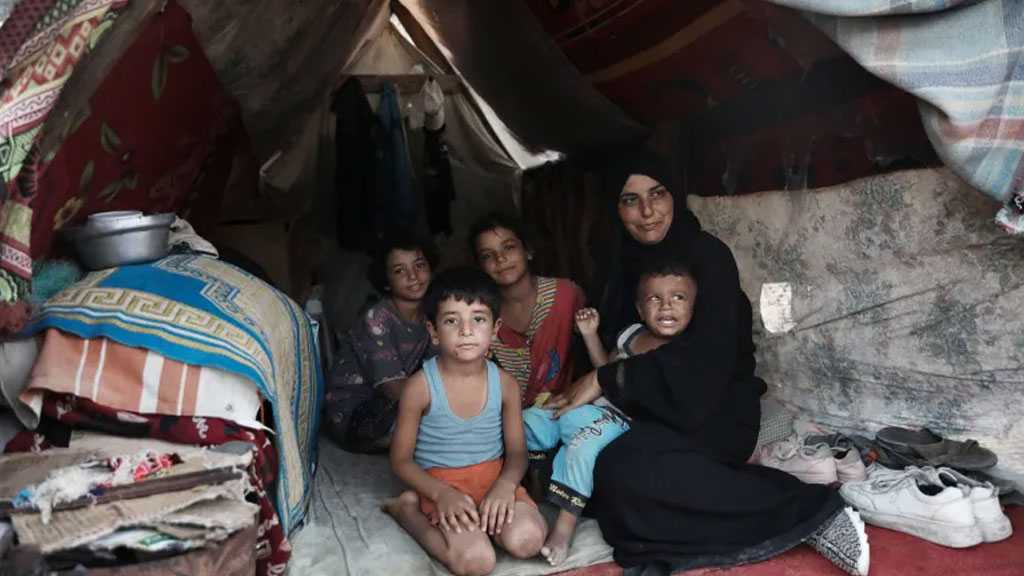Sabra and Shatila Massacre Survivors: ’It Can’t Be Unseen’
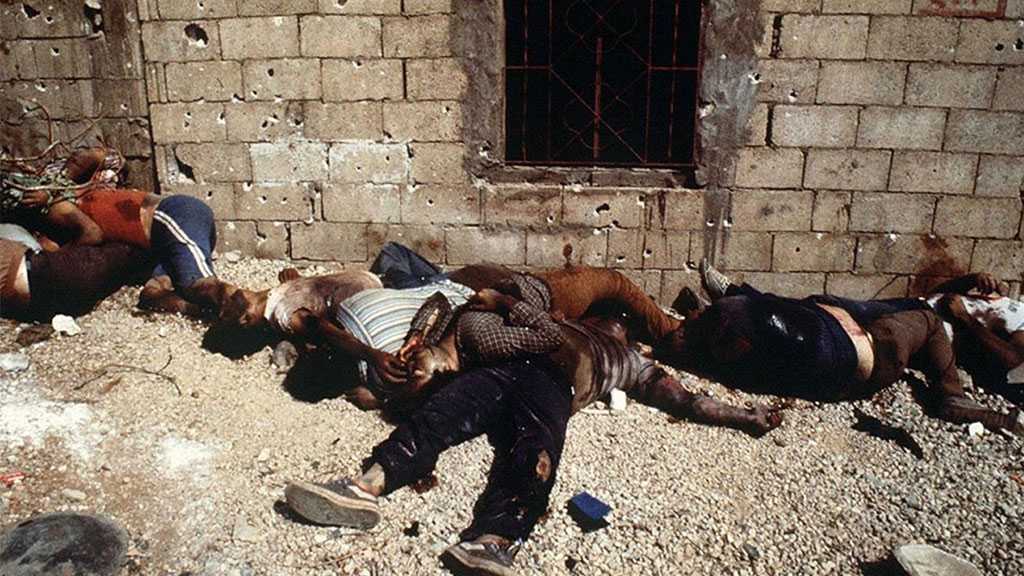
By Rita Kabalan | MEE
On 16 September 1982, fighters belonging to the Kataeb party’s Lebanese Forces militia entered the Palestinian refugee camps of Sabra and Shatila in Beirut’s southern suburbs.
They were accompanied by their allied ‘Israeli’ soldiers, who had recently taken west Beirut after Palestinian Liberation Organization [PLO] fighters had withdrawn.
For three days, under the watch of ‘Israeli’ soldiers, the militiamen slaughtered men, women and children. The vast majority were Palestinian civilians, but a significant number were people of other nationalities. Up to 3,500 were killed.
Forty years on, Middle East Eye speaks to the massacre's survivors.
Nouhad Srour al-Mirei, 52 | 'He shot at us - bullets piercing our bodies'
Nouhad was born in 1965 in south Lebanon. She is a Palestinian refugee and lived in Shatila with her husband. She has seven children.
We all gathered in the entrance. I was holding on to my father. We opened the door for them because they didn’t sound like ‘Israelis.’ They asked my father if he was a fighter. He showed them his arm injury to show he couldn’t possibly fight and told them to search the house for weapons.
A young man with light hair came in carrying a gun. My father kept telling me not to be scared, that they would ask us a few questions and leave. I looked at their green uniforms and saw, in black writing, "Lebanese Forces". There were many of them outside. A man with darker hair came in. "What is in your hands?" he asked me. I was holding my baby sister, Shadia, who was one year and two months old, in one arm and carrying her nappies in the other, thinking they would make us leave.
He finally told us to go up against the wall, on mattresses. He then told his men: "Spray them”. He disappeared, then returned. "You haven't sprayed them?" The other guy wasn't able to - I was looking directly at him. "Spray them! Give it to me," and he shot at us - bullets piercing our bodies.
My baby sister who I was holding was hit in her head. I didn't want to drop her. I gently slid down to the ground, and played dead, but eventually let her go. She was still alive and went towards my mother, she cried "Mama, mama" twice. We heard a single bullet after that and then we didn't hear her voice anymore.
Shadia died along with our dad, brothers Shady [three], Farid [five], Nidal [13], and our neighbor Leila, who was staying with us because her husband was away. She was nine months pregnant.
Hassan Ali Sukkar, 80 | 'It can’t be unseen. People decapitated, without limbs'
Hassan was born in Yaffa, Palestine in 1942. He was forced out of Palestine to Beirut in 1948 by the Arab-‘Israeli’ war, and is now married with seven children. He used to work in wood finishing/refining.
I was very young in 1948, so I don’t have clear memories of the Nakba. Maybe that’s why it doesn’t feel as heavy as the massacre. That was the worst thing that I have witnessed in clear memory. It can’t be unseen. People decapitated, without limbs.
I was in disbelief when I heard there was a massacre happening. My wife and I took the kids and stayed in a mosque in the nearby neighborhood of Tariq al-Jdideh until things calmed down.
My home was deep enough inside the camp that they didn’t reach it to loot. The massacre started in the Arsal area. They surrounded the area and killed the Lebanese there, many of our Shia brothers and sisters - many in the Miqdad family. Then they entered towards Gaza Hospital to kill Palestinians, to kill whoever they wanted to kill and do whatever they wanted to do.
I don't have a future anymore. I'm 80-years old. What matters now is the future of the next generation, the young people, the students getting degrees and then having to work in garbage collecting to feed their families. We see them with our own eyes. We want civil rights. To me, that’s more important than naturalizing and being allowed to become Lebanese citizens.
Rajaa Issa Ismael, 55 |'People were shot while they were in their pajamas’
Rajaa was born in Lebanon 1967. She works with the NGO al-Najdeh and holds workshops for women's rights and raises awareness against violence.
I was 16-years old turning over dead bodies with my mother to find out if one of them was my brother. Ismael was 13. He followed the sound of bullets and was hit in both of his legs and arm by the ‘Israeli’ forces and was taken to Gaza Hospital, but we couldn’t find him there after the massacre.
My mother asked me what he was wearing and I couldn’t remember, maybe jeans and a shirt. We found people slaughtered, people shot while they were in their pajamas.
I found my friend's dead body and she was obviously raped. I found the body of a man who ran the grocery store near us and his leg was gone. Amal, a woman we knew, who was pregnant, was stabbed in her belly and killed. All the photos of men you see fallen forward were actually lined up and executed with gun fire.
When the Red Cross came, they were not able to remove the dead bodies - they had decomposed under the hot September sun for three days. They used bulldozers to move them. We lost hope of finding Ismael.
On Sunday, my father’s friend Souad came to our relative’s house and brought Ismael with her. She had seen the Lebanese Forces and ‘Israelis’ removing people from Gaza Hospital in groups so she pulled him out suspecting they were taking the wounded out to kill them. She’s not sure why they allowed her to pull him out but suspected that had they shot at them, the rest of the people going [who had assumed they were going to a safe place] would know otherwise and run.
I find the need to talk about this day. We are not going to forget it. We have yet to feel peace. Our entire family is separated. Every sibling in a different country. I’m the only one who is still here. I want things to be different for the new generation.
Riddah Ali Fayad, 67 | 'I never found the bodies of my mother or sisters'
Riddah was born in Lebanon in 1955. His family lived in an area known as Horsh [Forest] adjacent to Shatila camp, a name that came from the trees it once had, although few remained at the time of the massacre. He worked for the Beirut municipality in the sanitation department cleaning and is married with eight children.
After I fled the killings, my brother Abbas went back to the camps to carry his injured friend Ali to Gaza Hospital. I don't know why Abbas went back, because he had seen them killing people. Abbas went home and started cooking eggs and potatoes because he was hungry - as if it was any other day. That meal was left on the fire and he never ate it.
When the militias shouted for them to surrender, my brothers, Abbas and Hamza, and my dad went outside. They lined everyone up along the street and just filled their bodies with bullets. They killed Abbas. They shot Hamza in the legs. All the bodies lined next to him fell on top of him. He remained quiet and didn't make a sound. My father was shot seven times but he survived.
I heard they had lined up Nuha and Najah, my sisters, and mother Tamimi further down, but there were so many bodies. As I searched, I saw a Pakistani man in a room praying with the Quran over the body of his dead brother. I told him he needs to go, but he couldn't understand me.
I saw a Palestinian woman whose clothes were ripped. She told me she got away because she destroyed her Palestinian ID by eating it and told them she was from a random village in the south, a place she had never been to.
I was with my Syrian friend, Khaled. We would hide in the pine trees near our house when the Kataeb came close. We would sit there all day without food or water and take our chances to come down at night. We did that for maybe four days. I remember my lips sticking together from dehydration. I never found the bodies of my mother or sisters. We buried Abbas in our village in the south.
Wafaa Ali Afifi, 68 | 'No one is with the Palestinian people except God'
Wafaa was born in 1954 in Beirut’s Bourj al-Barajneh refugee camp, and moved to Shatila where she got married. She raised a family of eight children.
I had four children at the time. My husband wasn’t home, we heard they were going to kill the men, so I told him to leave. When I found out they were killing women and children, I grabbed the four kids and left the house.
Each one of them was grabbing at a section of my dress and running with me. People were leaving in masses. My daughter, Mnawar, who was only five-years old, got lost in the shuffle. For three days I searched for her. I was hoping she was killed instead of what I was imagining happening to her.
Every place I took the kids wasn’t safe. I ended up crossing to Mazraa, north of the camps, where I found my husband, and we stayed in an abandoned building for three days wondering what happened to our daughter and how to find her. Eventually we heard that someone from the camp had brought in a lost little girl. It was Mnawar. We were reunited shortly after and went back home.
There were dead bodies everywhere. Emotionally, I can't think about it without the hairs on my arms standing up. I tell myself “may those days never come back”, but look at what’s happening in Palestine. Every country's leadership is against us. No one is with the Palestinian people except God.
Mnawar lives in south Lebanon's Saida now and has eight children of her own. She tells them about the massacre and the time she was lost and found her family again.
Yasmine Ahmad Hazineh, 28 | 'It weighs on our generation emotionally'
Yasmine was born 1993 in Shatila. She is married with two children, and manages a kindergarten and the Baylsan Theatre in the camp.
My dad is Palestinian, born in Syria. He was a fidai who came to Lebanon at the age of 13 to fight and free Palestine. Palestinians are born from the womb as fighters for Palestine. Not because we choose to: we are born without a land so we're searching for ways to get back to our land and to live with integrity.
I started social work at the age of 13 or 14 - tutoring kids and later teenagers. I found out about the massacres then. My father would tell me what happened from the people he knew. I felt heartbroken at the injustice. The people who were living in Shatila wished for the most basic rights. Suddenly on top of everything they were already dealing with, there's a massacre: people murdered between night and day. My feelings were not ones I can describe with words.
The new generation hears these stories, that their ancestors were killed, and then they’re walking in the same spot that their relatives were slaughtered. Imagine thinking: "My grandfather was killed here. My neighbor here. A pregnant woman was attacked here? My neighbor covered her body with the dead body of her sister in order to not be seen."
Imagine, to cover a corpse that belongs to someone you love? I'm shaking as I’m talking. It weighs on our generation emotionally.
Every day we have a massacre in Shatila… There is so much oppression and trauma, sometimes if two neighbors fight, they may shoot and kill people. The water we are drinking, the food we are eating. What can I tell you? Massacres are unending.

